|
Following
the terrorist attacks on
the World Trade Center in 2001, Hollywood went to extreme measures for
films
not to reference or show images correlating to 9/11 out of respect for
the
victims and their families. However, over the past two weeks there have
been
two films, both action blockbusters, which have exploited post 9/11
fears and
geocentric attitudes against outsiders.
Both World War Z and Zack Snyder's Man
of Steel believe that one man can save the world against outsiders
of
American values like the family unit. If you're not with America,
you're
against it. Henry Cavill's Superman (Clark Kent/Kal-El) assures some
military
grunts that because he was raised in Kansas he's as American as they
are.
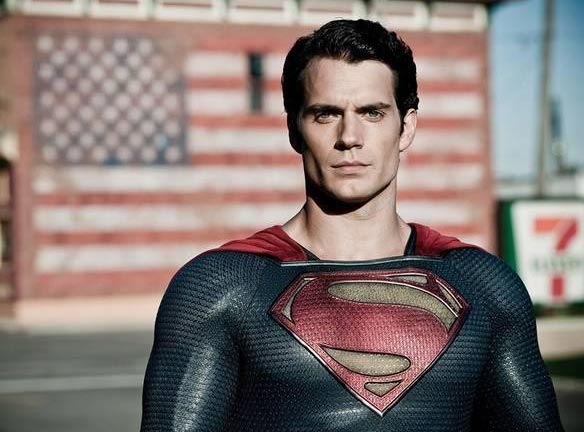
Some of
these ideological practices
aren't new - they're just louder and more bombastic and blaring than
ever
before. Superman was a comic book character invented in the Great
Depression
Era to fight against injustice and corrupt politicians. Now Snyder, who
directed
the comic book adaptations Watchmen
and 300, is keen to bludgeon us with
endless fight sequences and the vision of buildings collapsing.
Superman's
damage toll is so great
in this film the people of Earth would be better off without him. After
an hour
final hour of swooshing around and biff, where no one seems to get
hurt, it's a
numbing emotional experience. The crowded street scenes of panic do not
merely echo
the dust covered streets of panic from 9/11 but fetishise the
synonymity of the
images through their frequency and duration.
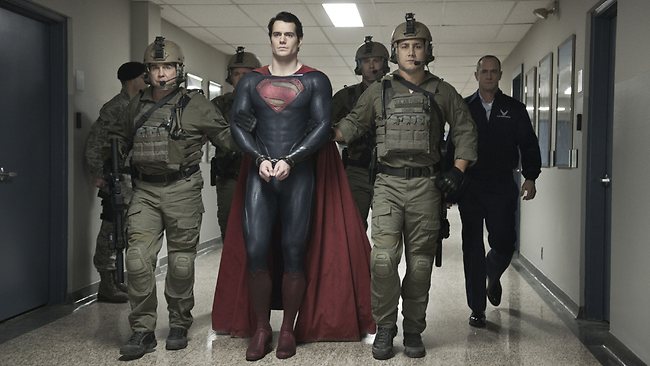
Every
scene is desaturated by ugly,
grey, muted tones, so that Superman's costume is the only colourful
force in
this world. Man of Steel is also
quite possibly one of the loudest films of the last ten years. Every
explosion,
shout of dialogue and special effect, and Hans Zimmer's repetitive
score, is
cranked up to ear bleeding decibels.
It's not
uncommon for blockbusters
to play out like video games today. It's sadly what makes them bankable
to
teenage boys. But when there are heavyweight names behind the project
like
Christopher Nolan, who produced film and has a story credit, we expect
a lot
more.
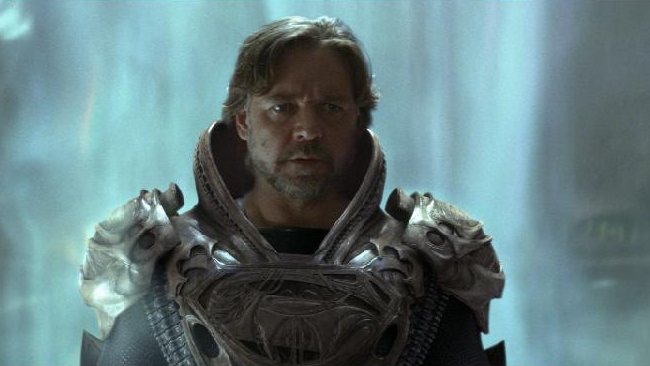
The story
by David S. Goyer (Batman Begins) retreads many of the
same
tired tropes of the superhero genre but lacks its own unique complex
moral dilemmas
and the personal relationships of Nolan's Batman films. His script is
heavy on clunky,
expositional dialogue and backstory and light on character development
and a
thorough plotline to drive the film's narrative.
Some of
the details about Superman's
passive nature, in having to hide his powers through various jobs like
a
fisherman and a bartender, seem interesting for a little while. He's a
cross
between Christ and Bruce Wayne. This is until the film recalls the
overused comic
book guilt thread, when something happens to his stepfather Jonathan
(Kevin
Costner), who is treated like a cipher for Clark's internal
conflicts.
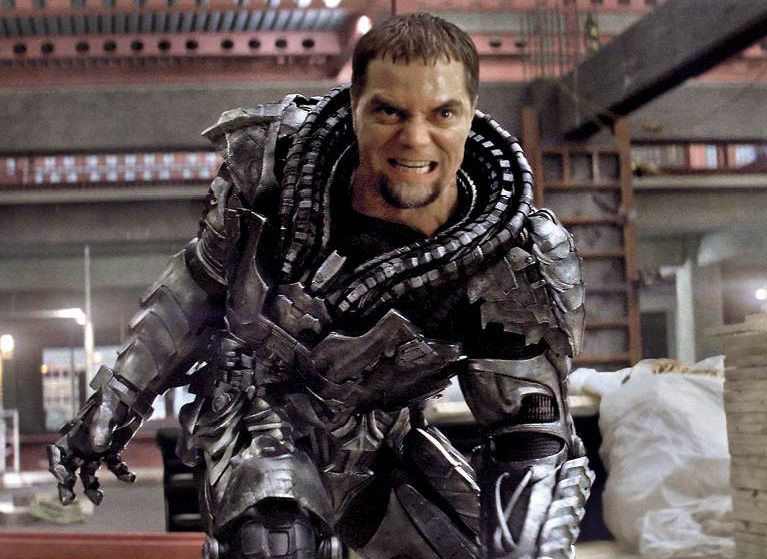
The early
passivity is
unimaginatively dismantled in the second half by an interminable climax
against
General Zod (Michael Shannon), who wants a MacGuffin-like codex device
to save
his own people by, wait for it, destroying the Earth's population. More
than
any other genre, superhero films are judged on the quality of their
villains. This
is one of the least memorable ones, particularly when there is little
danger
exuded from all the banging and swooshing.
One of
the few aspects of the film I
liked was Amy Adams' Lois Lane, who is at times resourceful in the face
of her
stubborn editor employer (Laurence Fishburne) or even an action scene.
But why
does the film neglect any personal tension with Superman by allowing
her to
know his true identity so early on?
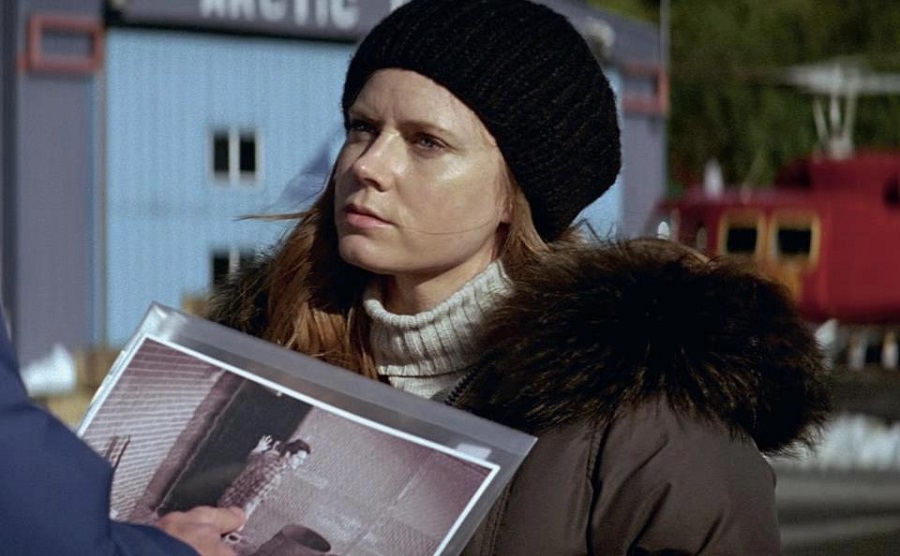
As for
Kal-El himself, Kavill offers
an occasional smile and has the physical bulk but little else. With so
few
lines of dialogue he rarely has the chance to display any potential
charisma. Russell
Crowe has a bland, Obi-Wan Kenobi-like role as Jor-El, Superman's real
father,
where his only standout moment is the busy, nauseating opening on
Krypton that's
more Xbox than exposition.
Overseas,
Man of Steel opened to a blistering weekend
earning $116 million
dollars. Would we have expected anything
different considering the hype? Yet in its second week in the US it
plummeted
by 65%. To quote The Dark Knight
itself: "Sometimes, people deserve more". Expectations for this genre
are immeasurably high now because comic book films do not have to be
this soulless
or exploitative of 9/11 fears, but can develop their own intelligent
ideas about terrorism. Even the traitors of the state know their
movies.
|